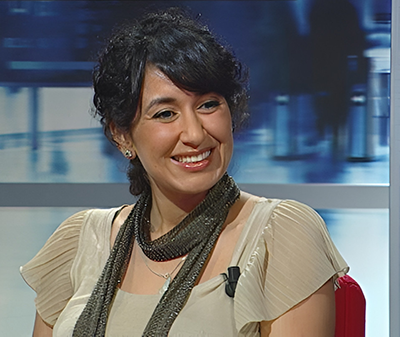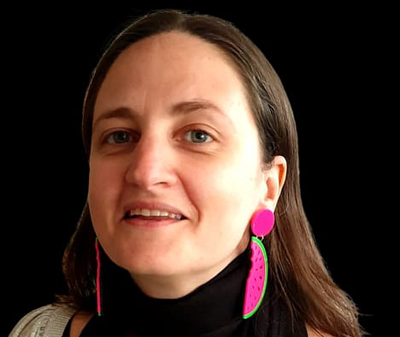Keynotes & Plenaries
2025 Annual Firth Lecture
Clawing Back: Redistribution in Precarious Times
Professor Deborah James, London School of Economics
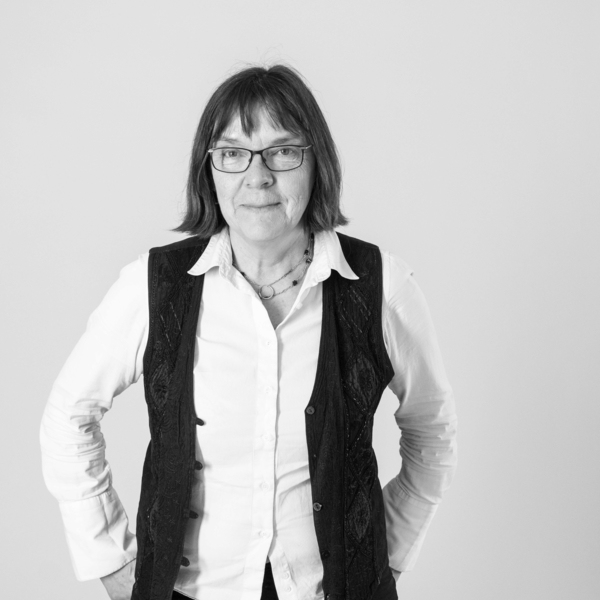 This talk explores how, as re-allocative processes shift beyond those that were tried and tested in the heyday of the welfare state, people make a living and pay for what they need and want. They do so, in part, by ‘clawing back’ what they feel is due to them – using a nexus of relationships through which they relate to three sets of actors: the private or state institutions to which (or individuals to whom) they owe money; those in market or state settings who employ them and pay their remuneration; and the government agencies, non-governmental organisations or charitable institutions through which they seek, and sometimes find, social protection. Often the three are almost indistinguishably interwoven, and advisers and activist-intermediaries are relied upon to help draw boundaries between them. In the process, formal and informal redistributive processes interlock.
This talk explores how, as re-allocative processes shift beyond those that were tried and tested in the heyday of the welfare state, people make a living and pay for what they need and want. They do so, in part, by ‘clawing back’ what they feel is due to them – using a nexus of relationships through which they relate to three sets of actors: the private or state institutions to which (or individuals to whom) they owe money; those in market or state settings who employ them and pay their remuneration; and the government agencies, non-governmental organisations or charitable institutions through which they seek, and sometimes find, social protection. Often the three are almost indistinguishably interwoven, and advisers and activist-intermediaries are relied upon to help draw boundaries between them. In the process, formal and informal redistributive processes interlock.
The lecture was recorded and is available to view on the ASA Firth Lecture page.
Decolonisation and the Anthropological Conjuncture: Thinking with Stuart Hall
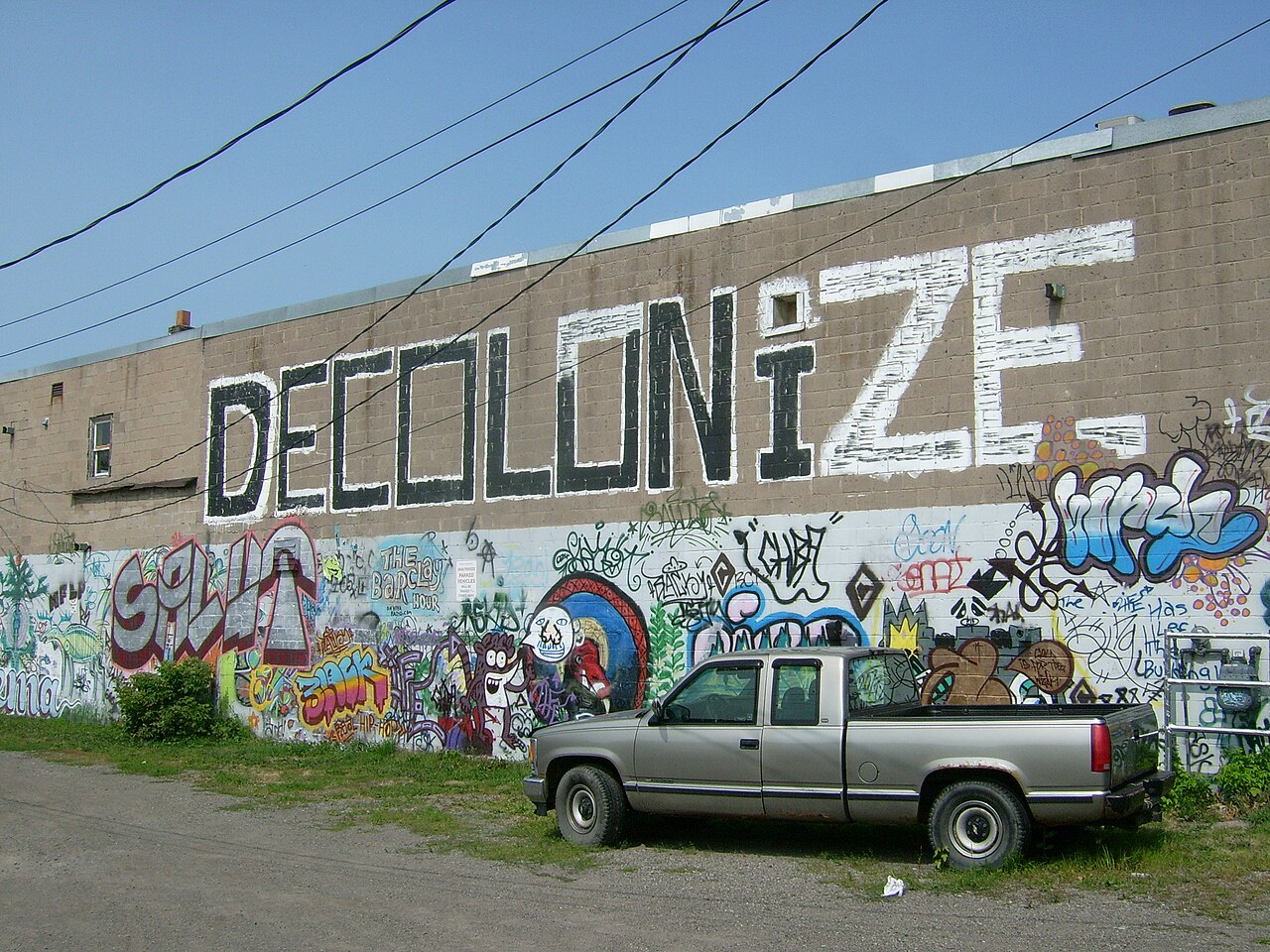
Chair: Luis Manuel Garcia-Mispirita
Panellists: Toyin Agbetu (UCL), Yael Navaro (Cambridge), Pat Noxolo (Birmingham) and Dimitrios Theodossopoulos (Kent).
The plenary was recorded and is available to view for conference delegates via the conference programme.
Fage Lecture 2025: What print made possible in colonial Lagos
Professor Karin Barber, University of Birmingham
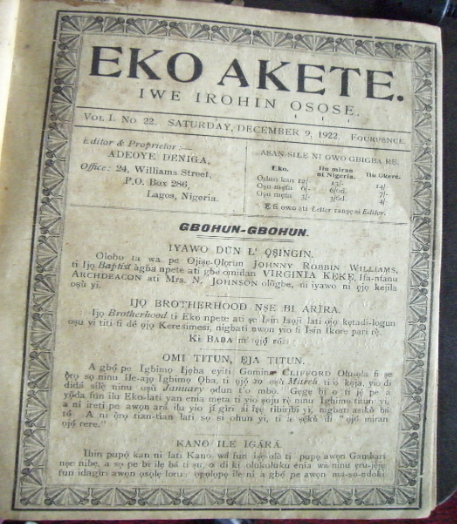
The Annual Fage Lecture is a highlight of the academic calendar in the Department of African Studies and Anthropology. The Inaugural Annual Fage Lectures were held in 2013 to mark the 50th anniversary of the founding of Centre of West African Studies, as the Department was then known. The Lectures are named in recognition of the work of Professor John Fage, the Department’s founder, who played a central role in the institutionalisation of African Studies. You can read more about our past Fage Lectures here.
Abstract
A new wave of research on the history of the press in Africa and South Asia has emphasised the need to look at the texts themselves – their format, style and point of view – rather than treating them as transparent sources of information for research on other topics. It has drawn attention to the fact that in British colonial print cultures, English often co-existed and interacted with one or more local print languages, and could act as both irritant and stimulant to new local-language creativity. Against this background, I want to ask what the local producers and readers of print themselves thought print could do. How did linguistic cohabitation in the press relate to their conception of their place in the Empire, and their construction of print as civic space and site of innovation?
Plenary: Academic Freedoms
This plenary provides a space to explore what the discipline as a whole and individual anthropologists alike need to do to defend and exercise our freedoms to speak and act. The tremulant geopolitics of our time present us with ecological disaster, rising ethnicised nationalisms, and the effects of past and present settler colonial projects. The authoritarian creep in UK public life, compounded with anti-poor sentiments and racialised border-policing policies, are some examples of these wider shifts across the globe – and ones that demand responses from us as anthropologists in the UK. As a discipline we have, for a long time, been good at indexing and diagnosing these transformations, and exploring them with care through our ethnographies. How should we reflect on them as and when they impact us, our students, and our colleagues?
Chair: Fuad Musallam (University of Birmingham, Local Committee Member)
Panellists: Professor Miriyam Aouragh (Reader in Digital Anthropology, University of Westminster), Riccardo Jaede (PhD Student, London School of Economics), Dr Mariya Ivancheva (Senior Lecturer in Education, University of Strathclyde), Dr Ammara Maqsood (Associate Professor in Social Anthropology, UCL).
The plenary was recorded and is available to view for conference delegates via the conference programme.
contact: conference(at)theasa.org

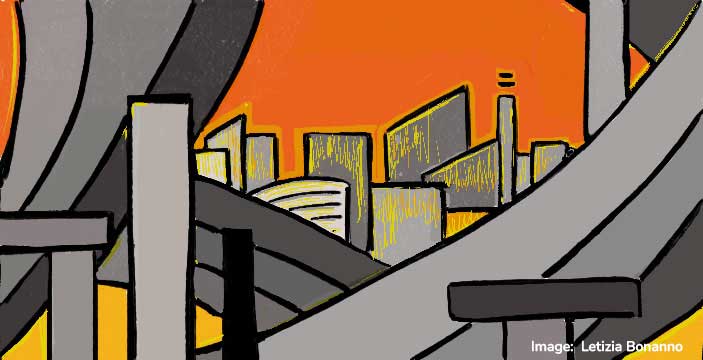
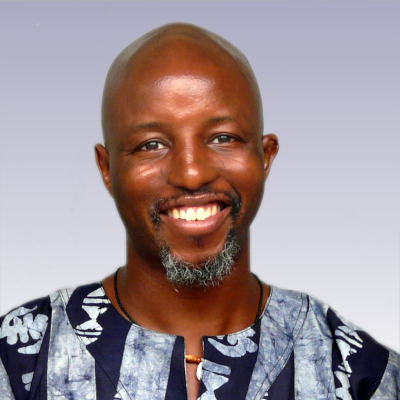 Toyin Agbetu is a political and social anthropologist at University College London whose research interests include ‘race’, ethnicity and social identities, Afriphobia, technology and society, social movements, and institutional activism. He uses reparatory and social justice approaches to create decolonial projects employing scholar-activism, critical pedagogy, community-based resistance, and exhibitionary praxis to challenge systemic racism, structural violence, and algorithmic discrimination.
Toyin Agbetu is a political and social anthropologist at University College London whose research interests include ‘race’, ethnicity and social identities, Afriphobia, technology and society, social movements, and institutional activism. He uses reparatory and social justice approaches to create decolonial projects employing scholar-activism, critical pedagogy, community-based resistance, and exhibitionary praxis to challenge systemic racism, structural violence, and algorithmic discrimination.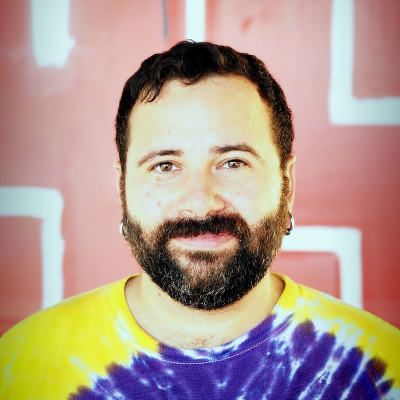 Luis Manuel Garcia-Mispireta is Associate Professor in Ethnomusicology and Popular Music Studies at the University of Birmingham (UK). His research focuses on urban electronic dance music scenes, with a particular focus on affect, intimacy, stranger-sociability, embodiment, sexuality, creative industries and musical migration. He is a member and resident DJ of Berlin’s queer intersectional rave collective, ‘Room 4 Resistance’. Garcia-Mispireta is currently developing a project on “grassroots” activism and queer nightlife collectives; he also has a new monograph out, entitled Together Somehow: Music, Affect, and Intimacy on the Dancefloor (Duke University Press, 2023).
Luis Manuel Garcia-Mispireta is Associate Professor in Ethnomusicology and Popular Music Studies at the University of Birmingham (UK). His research focuses on urban electronic dance music scenes, with a particular focus on affect, intimacy, stranger-sociability, embodiment, sexuality, creative industries and musical migration. He is a member and resident DJ of Berlin’s queer intersectional rave collective, ‘Room 4 Resistance’. Garcia-Mispireta is currently developing a project on “grassroots” activism and queer nightlife collectives; he also has a new monograph out, entitled Together Somehow: Music, Affect, and Intimacy on the Dancefloor (Duke University Press, 2023).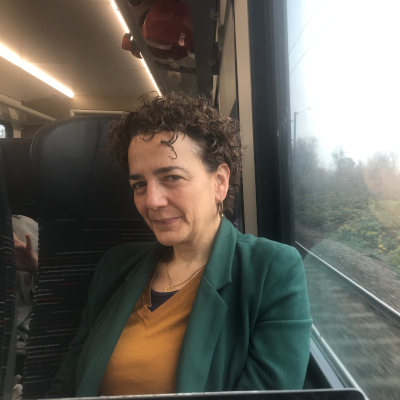 Yael Navaro is Professor of Social, Political and Psychological Anthropology at the University of Cambridge. She is the author of Faces of the State: Secularism and Public Life in Turkey (Princeton University Press (2002) and The Make-Believe Space: Affective Geography in a Postwar Polity (Duke University Press, 2012), and the co-editor of Reverberations: Violence Across Time and Space (University of Pennsylvania Press, 2021). Her work has been featured in the Journal of the Royal Anthropological Institute, Anthropological Theory, Cultural Anthropology, Annual Review of Anthropology, Postcolonial Studies, among other journals. She was the Principal Investigator of the European Research Council (ERC) project Living with Remnants: Politics, Materiality and Subjectivity in the Aftermath of Past Atrocities in Turkey (2012-2016). She is a co-convener of the Archives of Disappeared: Discipline and Method Amidst Ruin research network at the University of Cambridge.
Yael Navaro is Professor of Social, Political and Psychological Anthropology at the University of Cambridge. She is the author of Faces of the State: Secularism and Public Life in Turkey (Princeton University Press (2002) and The Make-Believe Space: Affective Geography in a Postwar Polity (Duke University Press, 2012), and the co-editor of Reverberations: Violence Across Time and Space (University of Pennsylvania Press, 2021). Her work has been featured in the Journal of the Royal Anthropological Institute, Anthropological Theory, Cultural Anthropology, Annual Review of Anthropology, Postcolonial Studies, among other journals. She was the Principal Investigator of the European Research Council (ERC) project Living with Remnants: Politics, Materiality and Subjectivity in the Aftermath of Past Atrocities in Turkey (2012-2016). She is a co-convener of the Archives of Disappeared: Discipline and Method Amidst Ruin research network at the University of Cambridge.  Pat Noxolo is Professor of Human Geography at the University of Birmingham. Her research brings together the study of international culture and in/security, and uses postcolonial, discursive and literary approaches to explore the spatialities of a range of Caribbean and British cultural practices. Key publications include (2022) 'Geographies of race and ethnicity 1: Black Geographies', Progress in Human Geography, 46 (5): 1232-1240, and (2022) Noxolo, P, Patten, H and Stanley Niaah, S. (eds.) Dancehall In/securities: Perspectives on Caribbean Expressive Life. (Routledge). She was awarded the 2021 Royal Geographical Society (RGS) Murchison Award, and is a Fellow of the Academy of Social Sciences. Pat has led two international teams exploring Caribbean in/securities and creativity –
Pat Noxolo is Professor of Human Geography at the University of Birmingham. Her research brings together the study of international culture and in/security, and uses postcolonial, discursive and literary approaches to explore the spatialities of a range of Caribbean and British cultural practices. Key publications include (2022) 'Geographies of race and ethnicity 1: Black Geographies', Progress in Human Geography, 46 (5): 1232-1240, and (2022) Noxolo, P, Patten, H and Stanley Niaah, S. (eds.) Dancehall In/securities: Perspectives on Caribbean Expressive Life. (Routledge). She was awarded the 2021 Royal Geographical Society (RGS) Murchison Award, and is a Fellow of the Academy of Social Sciences. Pat has led two international teams exploring Caribbean in/securities and creativity – 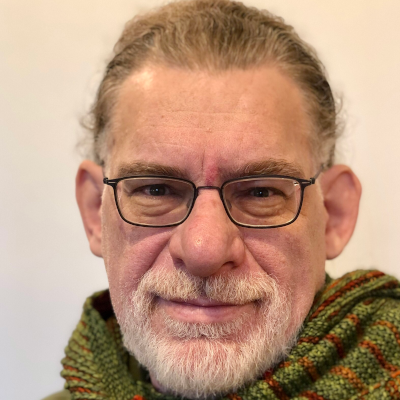 Dimitrios Theodossopoulos is Professor of Social Anthropology at the University of Kent. He has conducted research in Panama and Greece, and published extensively on resistance, populism, exoticisation, authenticity, environmentalism, and the politics of cultural representation and protest. He has also helped establish a new visual subfield—Graphic Ethnography—that brings textual and visual representation in a dialectic. His research on the anti-austerity movement led him to appreciate the work of Stuart Hall in greater depth. He now seeks to advocate the relevance of Hall’s thinking for contemporary social Anthropology. Dimitrios is currently the editor of the JRAI.
Dimitrios Theodossopoulos is Professor of Social Anthropology at the University of Kent. He has conducted research in Panama and Greece, and published extensively on resistance, populism, exoticisation, authenticity, environmentalism, and the politics of cultural representation and protest. He has also helped establish a new visual subfield—Graphic Ethnography—that brings textual and visual representation in a dialectic. His research on the anti-austerity movement led him to appreciate the work of Stuart Hall in greater depth. He now seeks to advocate the relevance of Hall’s thinking for contemporary social Anthropology. Dimitrios is currently the editor of the JRAI.